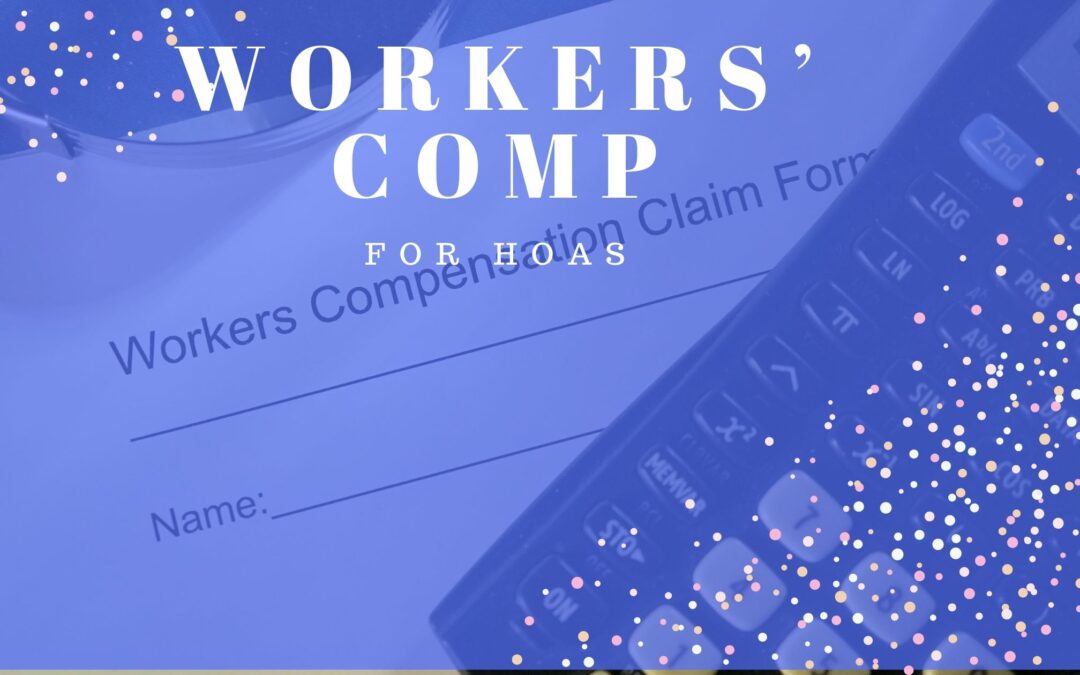Solely having a management company doesn’t always help the HOA when it comes to workers’ comp. For instance, the association could still be fully or partially liable for injuries that happen to contractors on the job. Even if the management company handles all of the outside hirings.
In addition, don’t forget about the board members themselves! If an injury happened to a board member while working, they could be eligible for compensation. It may seem hard to imagine at first, but there are times it is necessary. For example, while conducting routine inspections, the board member trips on uneven, cracked asphalt and injures their leg. They would likely be able to pursue compensation for the injury.
Workers’ Comp for Volunteers in the Workplace
Even volunteers who aren’t board members can fall into the category of “employees” when it comes to workplace injuries. If an injury occurs to a volunteer while carrying out instructions from the board, they could pursue a legal remedy. For instance, a board member directs a volunteer to purchase cups and plates for a community social event. The volunteer gets into an automobile accident on the way to the store and suffers an injury. Now the HOA is liable for that injury.
You can probably see that there are many scenarios where the HOA could be held responsible for an injury. Even without having any employees. The risk this liability brings is potentially devastating to the finances of the HOA.
Unfortunately, it’s not unusual for an HOA to not have coverage for workers’ injuries. Their vendor might not cover their own employees and the HOA didn’t follow through on due diligence to check their insurance. The board might decide the cost is too high and there is not much of a risk for the association. They might be assume insurance isn’t necessary because the job isn’t going to be complicated of take much time.
Common Mistakes HOAs Make on Workers’ Comp Insurance
Ok, so you’ve been convinced that a “worker” injury could happen under “employment” of the HOA. But there’s a few ways that boards don’t go far enough to protect the HOA and its finances by having their own insurance policy. Even while having good intentions initially.
Certificates of Insurance
One mistake some HOAs make is assuming that if they require all contractors to be “licensed and insured,” that any injuries on the job are covered. This isn’t the case. A contractor may have shown you a certificate of insurance to prove their coverage. You being told this proves that you’re covered because they have coverage. However, the certificate might only indicate they have general coverage. And this doesn’t include workers’ compensation. Any certificate of insurance from an outside contractor or vendor must specify it includes workers’ compensation coverage. Many people unfamiliar with different insurance documents don’t know general coverage won’t actually cover worker injuries.
Payroll and Contract Terms
Some HOAs keep regular service contractors on payroll for upkeep as well as repairs. And the board might’ve seen that the provider does have workers’ comp insurance. But the board has no way of knowing if that certificate expires. So you might see the correct insurance document when you hire them for a 3-year contract, but not know that a year later they failed to renew their policy. Now the HOA is liable and not covered.
Emergencies
Another time HOAs unintentionally open themselves up to work-injury lawsuits is when emergencies occur. If a pipe bursts in the middle of the night in a condo, the HOA and the property manager might not be available. As a result, the board member might just take action. They’ll probably hire a plumber right away to solve the problem. There may not be time to ask for and see the right certificate of insurance. During all of the chaos, forgetting it is a possibility.
Conclusion
The risk of potential liability is too high for an HOA to skip workers’ compensation coverage. There are many ways the HOA could be held responsible for an injury. The outcome could have a terrible impact on the entire community by depleting financial resources as well.

